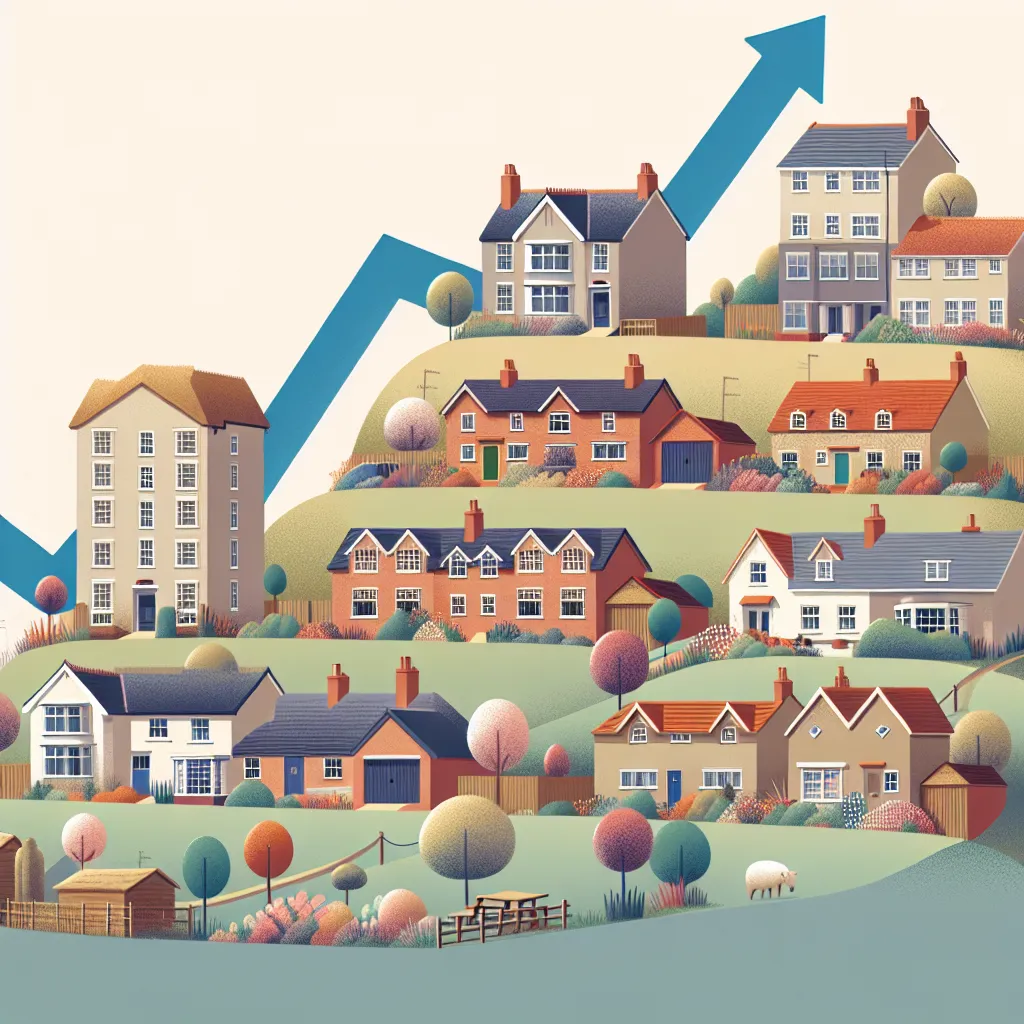Navigating the UK House Price Maze: A Guide to Understanding Trends

House prices in the UK have always been a topic of fascination, like a never-ending soap opera with unpredictable twists. Contrary to the belief that prices only skyrocket, recent trends reveal a more nuanced story. In January 2023, the average UK house price reached £290,000, marking a 6.3% increase over the previous year. This is a step down from December 2022’s 9.3% rise, suggesting a cooling off that’s both surprising and intriguing. So, what underpins these fluctuations, and what does the future hold?
Understanding the UK House Price Index
The UK House Price Index (HPI), a comprehensive measure of residential property price changes, is a key tool for anyone looking to buy, sell, or understand the market. It reveals not just the average prices, but also the percentage changes that can signal broader economic trends.
Why Does the Index Matter?
The HPI provides a detailed snapshot of the housing market, helping us understand where the market is headed. For instance, in January 2023, the index showed a notable slowdown in price increases compared to previous months. This information can be crucial for buyers and sellers aiming to time their transactions optimally.
Regional Variations: A Tale of Four Nations
House prices don’t just vary by time; they differ significantly across regions in the UK.
England: The Powerhouse
England saw house prices increase by 6.9% to an average of £310,000. This growth, while substantial, was slower compared to previous years, reflecting a broader trend of stabilization.
Wales: The Rising Star
Wales experienced a 5.8% rise, with average prices hitting £217,000. This robust growth indicates a strong demand, possibly driven by lifestyle changes post-pandemic.
Scotland: The Steady Climb
Scotland’s prices grew by a modest 1.0%, reaching £185,000. Despite being the slowest growth among UK nations, it signals a stable market.
Northern Ireland: The Surprising Leader
With a 10.2% surge, Northern Ireland’s average house price of £175,000 leads the pack. The affordability factor makes it an attractive market for first-time buyers.
A Closer Look at English Regions
North East: The Underdog
The North East, with the lowest average price of £163,000, saw the highest percentage increase of 10.0%. This might suggest a burgeoning market ripe for investment.
London: The Unyielding Giant
London remains the priciest region, with average prices at £534,000. However, its growth of just 3.2% indicates a slowdown, perhaps due to affordability constraints.
Graphing the Trends
Here’s a visual representation of the annual percentage change in house prices from January 2022 to January 2023:
“House Prices UK Graph”
The UK house prices graph showcases significant trends over time, highlighting key statistics:
- Average Price (Jan 2023): £290,000
- Annual Increase: 6.3%
- Regional Variations:
- England: £310,000 (+6.9%)
- Wales: £217,000 (+5.8%)
- Scotland: £185,000 (+1.0%)
- Northern Ireland: £175,000 (+10.2%)
This data reflects a cooling market yet indicates growth opportunities. For a detailed analysis and insights on property trends, leverage AnySqft to make informed decisions.
Explore comprehensive tools at AnySqft for your real estate needs!